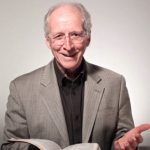by Josh Buice (original source here)
Yesterday I preached from Mark 10:1-12 on the subject of marriage, divorce, and remarriage. What exactly does the Bible say about this often debated subject? My sermon was one of the longest sermons I’ve ever preached and I sought to deliver it with pastoral sensitivity while not compromising one ounce of God’s truth. I felt as if I had delivered a weighty message upon the completion of the sermon. This is a very important subject in our age of compromise regarding marriage.
Jesus’ Ministry of Teaching (Mark 10:1)
Upon arriving in the Perean region beyond the Jordan, a great crowd came to Jesus. Their agenda was to receive healing of physical disease and perhaps to see this man who had literally become famous through His preaching and miracles. Jesus, as was His custom, taught the people. While He did perform miracles, His foundational ministry objective was teaching and preaching. This should be emphasized when reading about how Jesus ministered and it should not be forsaken in the church’s ministry in our present day.
Jesus’ Teaching on Marriage, Divorce, and Remarriage (Mark 10:2-12)
First, we must note the way Jesus ended up teaching on this subject. The Pharisees were seeking to trap Jesus, and they raised a question about divorce. According to the parallel account in Matthew 19:3, they asked, “Is it lawful to divorce one’s wife for any cause?” Two competing rabbinical schools existed in Jesus’ day, one ultra liberal and the other somewhat conservative, both had opposing views on the subject. The Hillel school purported the liberal position which created loopholes for divorce for almost anything. The Shammai school taught a more conservative position. Jewish history accounts for instances of men divorcing their wives on the basis of an inappropriately cooked meals, talking too loud, speaking to men in public, or dishonoring the husband’s mother-in-law. Continue reading






